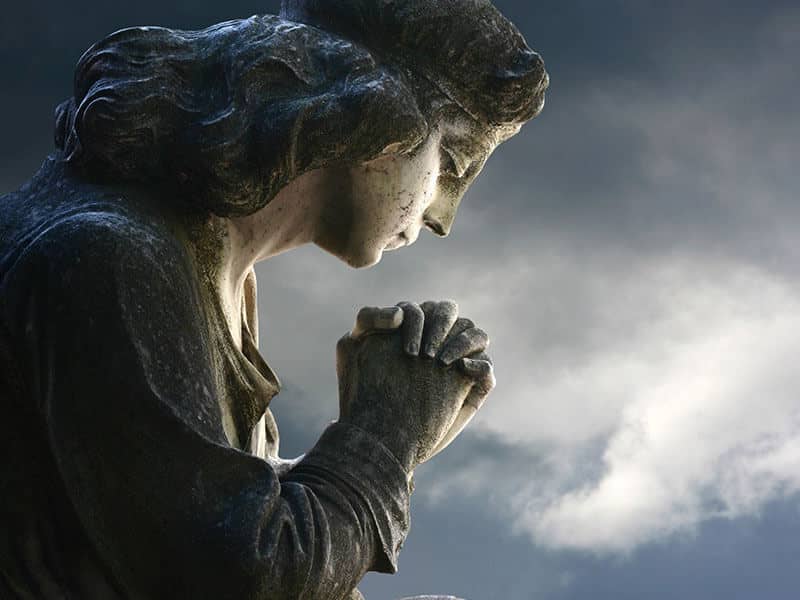
Recently, while working on the manuscript of "The Divine Life of Pets," my book about the soul-life of animals, I ordered a book from Amazon that, once I had it in my hands, I realized wasn’t going to be all that useful to me. I decided that it might be of interest to a woman in my apartment complex a few floors down from me, so I left it with George, our doorman, to pass to her.
A few days later, George stopped me on my way out of the building.
George is Hungarian and has been working at my apartment building for years. While I knew him as a responsible doorman and a pleasant person, I didn’t know anything about his personal life beyond the fact that he was fond of sports and liked to keep up with what was going on in his native country by reading Hungarian-language newspapers.
“That book you asked me to deliver,” George said in his correct but heavily accented English. “I wanted to speak to you about it.”
Had the book been lost? I was about to tell George it didn’t matter when he continued.
“I am so interested to learn that you read about these things too,” he said.
“What things?” I asked.
George raised his arms slightly and smiled.
“Ah, you know. The soul. Spiritual transformation. The higher self…The things”--and here George paused for a moment, as if looking for the right words--“that are happening.”
Is something happening? I think it might be. That encounter with George was only the latest piece of evidence I’ve bumped into in recent days that people are thinking about spiritual matters in a new way.
As someone who grew up in the early seventies in an unconventional household where alternative spiritualities (occultism, Eastern religions, etc.) held sway, I’m no stranger to the idea, popular in New Age circles, that the earth is about to undergo a massive change in perspective: a paradigm shift in which people will rise into a higher, more spiritually attuned condition.
But as someone who has written for Angels On Earth and Guideposts magazine for over ten years, I’m equally aware that for most Americans, such ideas raise deep suspicions. Most Christians are highly suspicious of New Age ideas, and the transformative visions of the individual and the earth at large that most New Age philosophies promise in one form or another.
Having found my way to Christianity and making a spiritual home for myself there, however, I eventually began looking, once again, at all those other belief systems--from Buddhism to Hinduism to Taoism to all the various and sundry more eccentric individual philosophies--I’d grown up with. This time, I saw these belief systems not as novelties to pick and choose from as my tastes dictated, but as parallel visions to acknowledge and respect, even when I disagreed with what they said.
A belief system is, I decided, kind of like a space suit: it’s an apparatus that allows us to approach--and to a degree, understand--the reality of the Divine without being simply annihilated by the force of what one finds there. While I might never be able to see those other traditions completely from the inside, by acknowledging and understanding them to the best of my ability, I could come to see my own faith--and my relationship to that faith--more clearly.
For me, the “things that are happening” these days in the world of spirituality have to do not so much with deciding which faith tradition is “right” or “wrong,” and even less with trying to squash all those traditions together into one big, mushy, one-size-fits-all faith that everyone can join. They have, instead, to do with realizing that all genuine faith traditions point to a reality that is bigger, stranger, and better than anyone on their own could ever possibly imagine.
Speaking of imagination: Imagine living in a seaside village, just a few blocks from the ocean. Then imagine meeting someone in this village who has never, ever left their house, and who therefore refuses to believe that the sea exists. He smells the salt of it in the air, feels its huge presence in its bones. He even, on days when the conditions are right, hears what just might be the sound of distant breakers. And yet he refuses to believe that that sea truly exists. Why should he, after all, when he’s never actually seen it?
If one big change is indeed on the way these days, I believe it might involve the final defeat of those voices which argue not for one faith tradition or another, but for the simple non-existence of the spiritual world.
Whether one is a traditional Christian, a practitioner of some other Eastern or Western faith, or whether--like George my doorman--one believes in some less definable amalgamation of spiritual ideas, one thing, these days, seems clear: the days of the people who, like that imagined man in the seaside village, refuse to leave their house and look at the sea is over for good.

